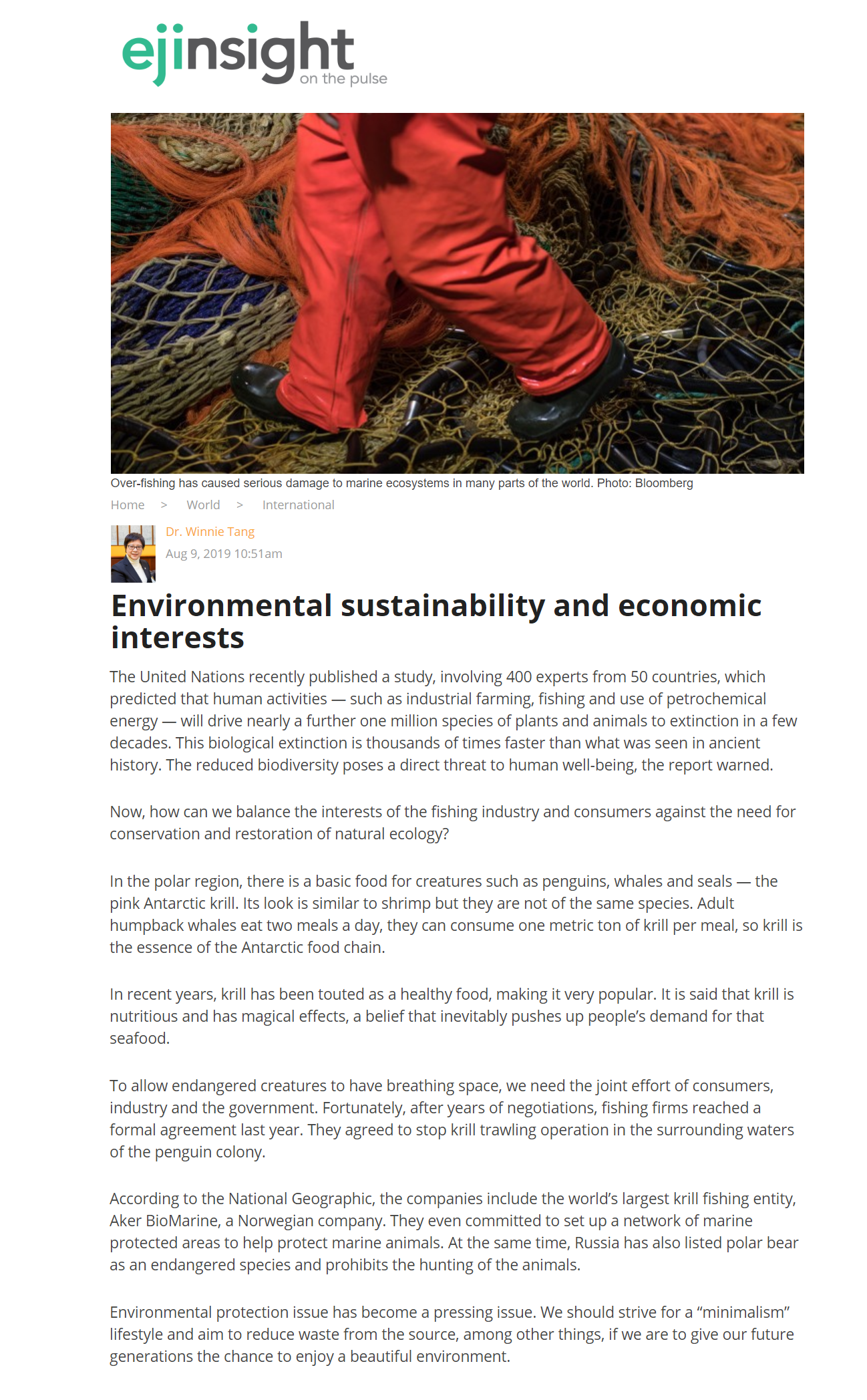網上版請按此

Environmental sustainability and economic interests
The United Nations recently published a study, involving 400 experts from 50 countries, which predicted that human activities — such as industrial farming, fishing and use of petrochemical energy — will drive nearly a further one million species of plants and animals to extinction in a few decades. This biological extinction is thousands of times faster than what was seen in ancient history. The reduced biodiversity poses a direct threat to human well-being, the report warned.
Now, how can we balance the interests of the fishing industry and consumers against the need for conservation and restoration of natural ecology?
In the polar region, there is a basic food for creatures such as penguins, whales and seals — the pink Antarctic krill. Its look is similar to shrimp but they are not of the same species. Adult humpback whales eat two meals a day, they can consume one metric ton of krill per meal, so krill is the essence of the Antarctic food chain.
In recent years, krill has been touted as a healthy food, making it very popular. It is said that krill is nutritious and has magical effects, a belief that inevitably pushes up people's demand for that seafood.
To allow endangered creatures to have breathing space, we need the joint effort of consumers, industry and the government. Fortunately, after years of negotiations, fishing firms reached a formal agreement last year. They agreed to stop krill trawling operation in the surrounding waters of the penguin colony.
According to the National Geographic, the companies include the world's largest krill fishing entity, Aker BioMarine, a Norwegian company. They even committed to set up a network of marine protected areas to help protect marine animals. At the same time, Russia has also listed polar bear as an endangered species and prohibits the hunting of the animals.
Environmental protection issue has become a pressing issue. We should strive for a “minimalism” lifestyle and aim to reduce waste from the source, among other things, if we are to give our future generations the chance to enjoy a beautiful environment.
Dr. Winnie Tang
Adjunct Professor, Department of Computer Science, Faculty of Engineering and Faculty of Architecture, The University of Hong Kong